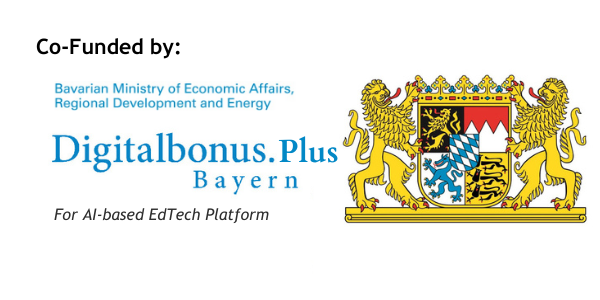Android Development Tutoring

In 2025, Android development is no longer just about learning to code—it’s about mastering an ecosystem of modern tools, AI-powered workflows, and design frameworks. And as the Android platform continues to evolve — shifting emphases from Java to Kotlin, legacy XML layouts to Jetpack Compose, and traditional coding environments to AI-assisted IDEs — the way we learn must keep pace. For students around the world seeking personalized, high-quality instruction, Android development tutoring has transformed into a strategic pathway to success. This article explores how that transformation is unfolding, and what students should know as they pursue excellence in Android programming.
The Evolution of Android Development in 2025
Kotlin-First Programming
Once regarded as Java-compatible, Kotlin has now firmly taken root as the primary language for Android apps. Dominated by safety features, concise syntax, and first-class support within Android Studio, Kotlin is the language of choice across the industry. In response, modern tutoring programs center their content around Kotlin — not as an alternative, but as the default. Even tutors specializing in beginners bypass Java entirely, introducing students to Kotlin, its coroutines, extension functions, and null-safety principles first. This not only streamlines learning but ensures students build future-proof skills from day one.

Jetpack Compose: Declarative UI Redefined
Android UI design has moved decisively away from XML layouts toward Jetpack Compose, Google’s modern, declarative UI toolkit. With Compose, developers build interfaces directly in Kotlin using composable functions. Learning Compose means mastering runtime recomposition, state management, theming, and animations within Kotlin code. Successful tutors in 2025 center their curriculum around Compose, so students build real apps, not just mock layouts. This marks a substantial shift in Android education and underscores the value of hands-on mentorship focused on current best practices.
AI-Powered Coding: Integrated Help from Day One
Android Studio now includes intelligent assistants that go beyond syntax hints. Interactive AI tools like code completion via natural language prompts, surround refactoring, and even UI generation from image assets are embedded features. Mentors in organic tutoring sessions will guide students in using these tools — not to replace learning, but to accelerate it. By teaching students how to craft prompts, evaluate AI-generated code, and integrate the output into well-structured projects, tutors are equipping learners with real-world skills increasingly relevant in professional workflows.
Global Online Platforms for Android Tutoring
Official Learning Paths and Certification Programs
The leading organizations now offer Android learning pathways directly from authoritative sources, complete with project-based milestones and practical assignments. While not the only option, these official courses often serve as the baseline for self-learners, and tutors frequently supplement them with personalized coaching sessions — especially for nuanced topics like app architecture or testing.
Professional Certificates and Structured Programs
High-profile platforms collaborate to deliver structured learning paths — from entry to job-ready credentials within 3 to 6 months. Certificates backed by recognized brands or universities remain influential. Tutors commonly integrate study plans from these courses into their lessons, complementing video lectures with live sessions, code reviews, and portfolio-builders. The ability to demonstrate both completion certificates and hands-on project proficiency is increasingly valued by employers.
Project-Based Interactive Platforms
Some platforms offer fully interactive, self-paced learning experiences supplemented by optional tutoring. Students learn through solving coding tasks in a narrowing curriculum model. In cases where tutors recommend these platforms, lessons often revolve around code review sessions and live problem-solving conversations. Tutors extract value from adaptive modules while still providing the mentorship missing from purely instrumented platforms.
Premium Bootcamps and Mentored Programs
Bootcamps offering bespoke Android tracks in 12–24 weeks combine recorded content, live sessions, and portfolio guidance. Full-stack programs bundle Android modules with backend, data and design principles. Tutors supporting students within these frameworks focus on performance review, interview preparation, and real-time debugging — an immersive blend of mentorship and structured coursework.
Among the growing number of online learning platforms catering to tech education, WiredWhite has quietly become a go-to space for many aspiring Android developers. It’s not a course factory — instead, it connects learners with individual tutors across a wide range of subjects, Android included. What makes it stand out is the freedom it offers: students can choose a mentor based on their own goals, time zone, or preferred learning style. For those diving into Android development, that means the chance to work one-on-one with someone who’s actually building mobile apps in today’s market — not just reading from slides.
Why Learn Android Development in 2025?
The global demand for Android developers continues to rise, particularly in Europe where the mobile-first market keeps expanding. Companies across industries — from fintech to health tech — are seeking skilled Android engineers to deliver fast, user-friendly apps to their customers. In countries like Germany, the Netherlands, and the UK, Android developers earn an average salary ranging from €55,000 to €85,000 annually, with senior roles exceeding €100,000. With flexible remote opportunities and a growing app economy, now is one of the best times to learn Android development and enter a thriving career landscape.
Credentialing and Career Pathway Integration
Alternative Certifications and Portfolio-Based Proof
By 2025, traditional certification routes such as associate-level exams have largely become obsolete. Employers now look more at a student’s portfolio of apps and coding proficiency. Tutors focus on helping students build apps that demonstrate mastery — ideally published in a public repository or app store. Certificates from trusted platforms support the narrative, but real-world projects sell competence.
Interview Prep and Career Coaching
A key differentiation of high-end tutors in 2025 is offering career coaching — mock interviews, resume reviews, technical whiteboarding practice, and app demos. Android developers frequently face questions on architecture patterns (MVVM, Clean Architecture), concurrency (coroutines, Flow), performance tools (profiler, Test frameworks), and Compose theming. Tutors model these scenarios and sharpen students’ readiness for hiring processes.
Portfolio Refinement and Public Presence
Part of modern tutoring includes polishing GitHub README files, deploying sample apps for real downloads, and organizing informative blog posts or video walkthroughs. Tutors often assist in creating presence on ports such as app portfolios or developer platforms where recruiters find talent. This visibility leverages the student’s projects and transforms learning into tangible presentation.

Evaluating Quality Tutors and Platforms
Curriculum Currency and Relevance
The Android ecosystem changes fast — new API levels, Compose library updates, security policies evolve. Tutors must demonstrate currency. Good tutors highlight recent Android versions they teach, explain the rationale for Compose over legacy systems, and mention support for frameworks like Hilt for dependency injection, Jetpack DataStore, Navigation Compose, or WorkManager. Student reviews often show whether the tutor stays current by noting updates and problem-solving ability with modern tools.
Real App Development and Code Review
Quality tutoring is anchored in building real apps, not sandbox exercises. Tutors who review code, provide incremental corrective feedback, and guide toward architectural best practices offer greater value. Students should ask prospective instructors: Will you review my code? Can you assign and assess projects beyond Hello World? Real app review builds critical thinking, debugging practice, and aligns with professional expectations.
Tutor Credentials and Experience
Top tutors today often list prior app releases, contributions to open-source projects, or professional roles (startup Android engineer, freelance consultant, enterprise developer). Feedback often notes how well the tutor communicates complex topics and adapts to different learning styles. Platform-based reviews and ratings inform those choosing tutoring services — testimonials citing clear explanations, patience, and practical advice signal high-quality support.
Personalized and Interactive Teaching Style
Unlike passive video consumption, great tutoring is interactive. Tutors use live screen sharing, interactive quizzes, real-time problem solving, and personalized explanations. Tutors also design mini-projects fitting learner goals — such as building a task app, note-taking app, or weather dashboard. Customization demonstrates adaptiveness and attention, essential for student retention and confidence.
Community Access and Ongoing Support
Tutors who include access to peer groups, Q&A forums, or alumni channels extend support beyond one-on-one sessions. Some platforms bundle access to moderated Discord or Slack groups. Students can post bugs or questions and benefit from group troubleshooting — blending peer support with expert guidance. Building such networks enhances learning and long-term success in Android development.
Student Perspectives: Why Online Tutoring Wins
Flexibility and Global Access
Students learn across time zones — London, Lagos, or Los Angeles may have tutors from Tel Aviv, Bangalore, or Rio de Janeiro. Online platforms support weekend schedules, evening lessons, and accommodate various time slots. This global flexibility fits students who are working professionals, full-time learners, or balancing commitments — meeting them where they are.
Cost-Effectiveness and Personalization
Compared to in-person bootcamps or formal college classes, private online tutoring can be far more affordable — especially when students choose a custom plan, pack sessions, or combine with self-study platforms. While rates vary, many tutors offer hourly sessions (often $15–$50/hour) tailored to the student’s pace. This results in high value: no wasted time on irrelevant topics, just focused instruction building toward immediate goals.
Accountability and Motivation
Having a live tutor ensures accountability — a student is less likely to procrastinate when sessions are scheduled. Tutors often assign weekly coding challenges, review progress, and help troubleshoot frustrating bugs. This mentorship model builds commitment and faster learning curves than siloed self-study.
Real-Time Feedback and Error Correction
Tutors can spot mistakes, give instant tips, explain misunderstandings of Compose lifecycle, scope functions, or coroutine usage in real time. This dynamic feedback loop boosts confidence and avoids reinforcing poor practices early. That level of correction is often missing in video-only instruction.
Final Thoughts: Why Tutoring Matters in 2025
Android tutoring in 2025 isn’t just about imparting syntax — it’s about building a developer. Tutors integrate modern languages, declarative UI frameworks, AI assistants, personalized learning paths, peer communities, and career prep into one cohesive experience. Learners receive deep support, clarity, and validation through project completion.
For students worldwide, tutoring offers a shortcut to relevance. Students refine skills that hiring managers respect, deliver polished apps in portfolio form, and practice collaboration in real-world contexts. In a global job market flooded with self-taught developers, personalized mentoring helps distinguish talent.
Choosing a tutor or platform with up-to-date curriculum, project-based learning, expert feedback, and career alignment can accelerate a student’s path from beginner to job-ready. In 2025, that difference is not just valuable — it’s essential.













Responses